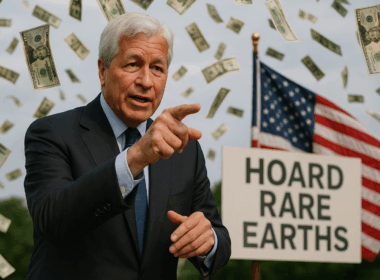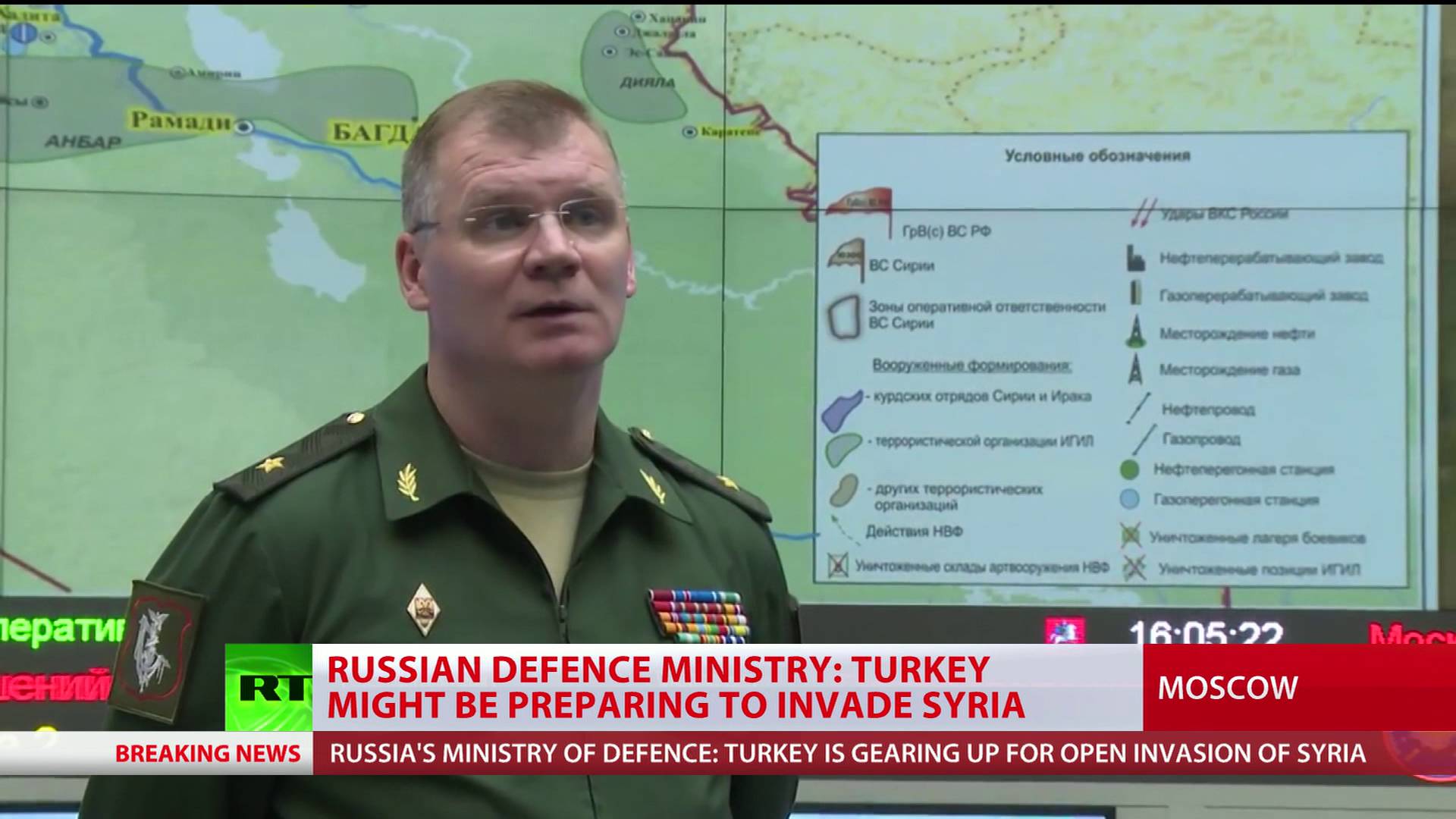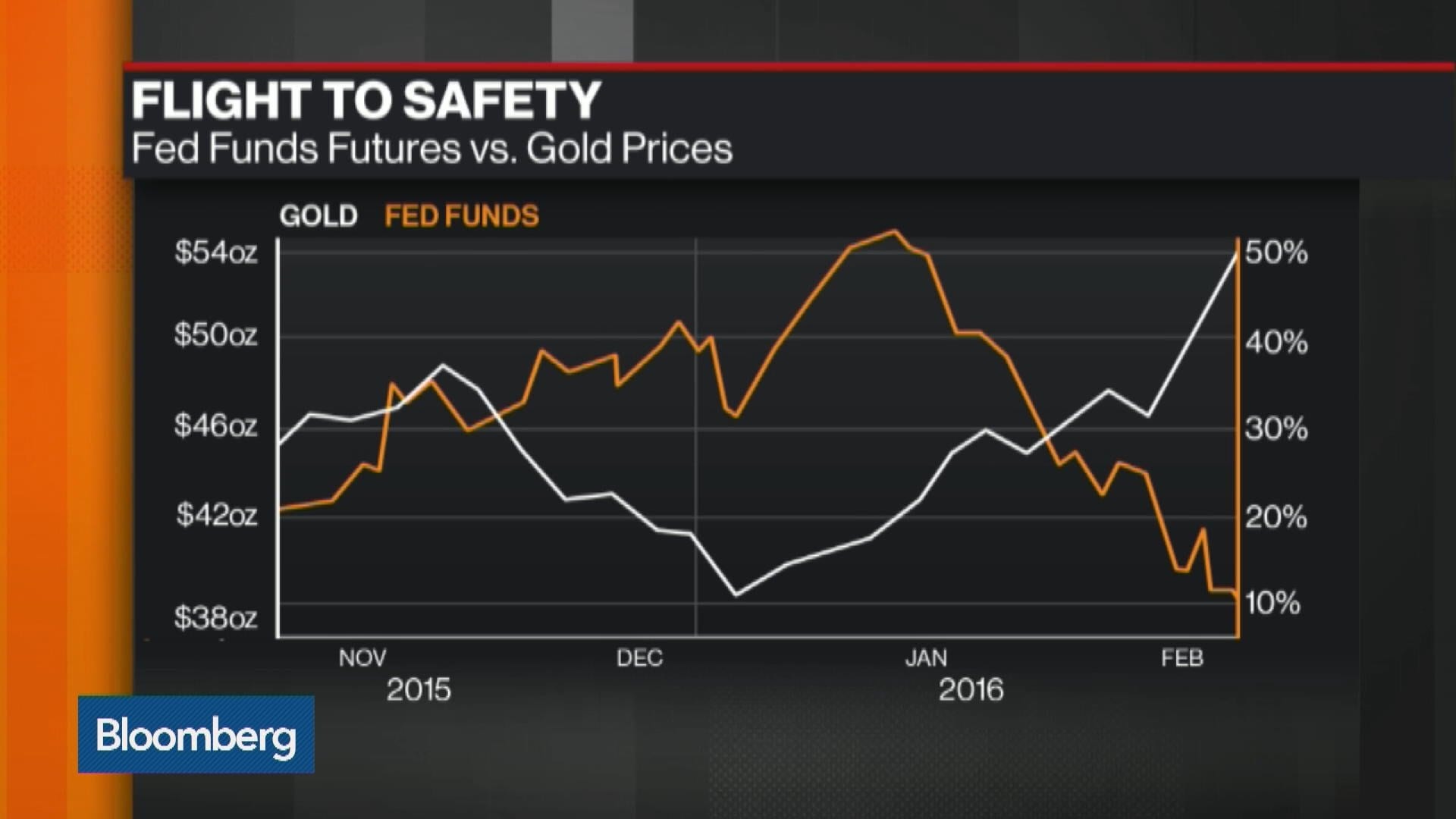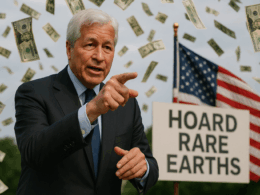Why Vancouver Housing is So Expensive and Why Oil Could Climb to $100
Two very disturbing scenarios could soon become reality. One of them could lead to piles of innocent dead bodies while the other to mass suicides.
Before I tell you what they are, I want to share with you a story that I was reminded of as I studied the scenarios.
Follow the Leader
More than 300 years before Christ, a man who had conquered much of the developed world led a small army of devoted and loyal followers to his next conquest.
The target was a great city full of riches. But the city belonged to a king whose kingdom was fortified by an impenetrable wall that sat atop a cliff – one that likely claimed the lives of many who tried to conquer it before.
But none of this put any doubt into the man, nor his followers.
The man walked up to the wall and stared up at the King, who was peering at the small army from atop his fortress.
He shouted to the King and his city, “I am Alexander the Great. I demand you surrender immediately!”
The King, surrounded by his walls, chuckled.
“Look around you. I have more soldiers. I have more people. And I am surrounded by a great wall. You, on the other hand, are surrounded by a cliff. Why would I surrender?” the King said to the tiny man and his small army.
Alexander smirked at the King but did not respond. Instead, he commanded his soldiers to form a line facing the cliff.
The King and his people were confused. If Alexander were preparing his soldiers for battle, why would the soldiers be facing the cliff? Alexander was about to show them.
He turned to his forces, looked upon their faces, and yelled, “March!”
The soldiers marched one by one towards the cliff. Without hesitation or question, the first soldier marched over the cliff to his death. The second one followed. Then a third. Then a fourth.
After ten soldiers had fallen to their death, Alexander yelled, “Halt!”
He looked up at the King. The King and his people were stunned. If one man could command so many willingly to their deaths, truly he had power.
The King surrendered and Alexander had won his city.
I have always been fascinated by history – especially by the leaders who were able to control society.
But what does this story have to do with this week’s Letter?
Death Through Deception
Let me ask you this: If you were commanded to walk off a cliff today by your leader, would you?
I assume your answer is no.
Yet, that is precisely what we are doing. Only, in our modern era, we’re being led off a cliff through deception.
The leaders of this world, whether you believe them to be politicians or bankers, have created a cliff so high and so fragile, that many are sure to fall. In fact, many already have – just ask Venezuela.
People believe things are okay. They are blinded by Obama’s power speeches and Trudeau’s boyish charm. They are blinded by climate change. And they are blinded by a distorted sense of reality.
Our world’s financial system is sitting atop a cliff that’s on the brink of collapse, and every day, more weight is piling on top.
From China’s credit crisis and economic slowdown to the Middle East wars; to South American currency collapses and America’s struggling economy; to Japan’s deflation and Canada’s recession and housing bubble, there is distress in every market of the world.
I am not saying it will happen today, but if something drastic isn’t done, we will see a complete reset of the financial system. I have been warning about this path for years and I now fear we are coming closer to the end.
Which is why I believe that we will soon see a major global accord or response happening this year. Or maybe simply war.
Since I can’t predict what global policies will come forth, or when, it would be unwise to time this collapse.
But what I can do is tell you what to prepare for.
CONTENT LOCKED
Enter your email to get instant access (it's free!)
to this special content post:
*By entering your email, you are agreeing to our privacy policy and terms of use. You will also receive a free weekly subscription to the Equedia Letter, one of Canada's largest private investment newsletters. Don't worry, it's free and you can cancel at anytime.
How bad do you think the world financial market are?
CLICK HERE to Share Your Thoughts
A World of Debt
One of our biggest concerns should be the amount of debt creation since 2008.
Debt and bad loans around the world are causing Forex markets to tremble in fear. This is precisely why we have seen so much volatility.
To fix the 2008 crisis, the Fed, and other central banks, resorted to debt creation to save the world. By issuing more money, they attempted to fix the 2008 financial debt bubble with, well, more debt.
As I mentioned in my Letter, “The Consequence of America’s Path,” when the Fed prints, other countries around the world print to keep up with the currency peg. They do this by issuing more of their own currency in relation to how much the US prints; if they don’t, they risk losing exports on a global scale because it becomes cheaper for their clients to do business elsewhere.
However, when countries attempt to keep this peg, they are devaluing their own currency by issuing more of it. The problem is that most of these nations do not have the ability to absorb the amount of currency creation through spending, nor can it export its inflation.
The US, on the other hand, is the most developed and largest economy in the world. Its dollar is the world reserve currency, which allows it to enjoy the freedom of globalization. In other words, the US can export its inflation when it prints; most nations cannot.
Call it QE, call it stimulus, call it whatever you want, these monetary actions
encourage banks to make more loans and take on more risk with financial assets. The idea is that banks take the newly printed money and buy assets to replace the ones they have sold to the central bank. Since banks can only do so much with all of this cash, they lend the money to hedge funds, corporations, traders, etc.
This is why we have seen record investments and valuations in private and public companies. This is why the stock market up until recently was at an all-time high. The money needs to go somewhere.
In the U.S., loans were made to hedge funds, venture funds, tech startups, solar startups, infrastructure, and the big shale boom.
In Europe, loans were made to struggling corporations, bank bailouts, and consumers to create a new housing bubble.
Since credit was so easily spread, analysts now estimate that bad loans in Europe total more than $1 trillion euros. That’s equal to Spain’s annual GDP.
From Italy to Brazil, bad loans or non-performing loans (NPL) all over the world continue to rise as a result of the contagion of cheap and excess money.
In Russia, bad loans to consumers have already doubled over the last four years.
Via Bloomberg:
“Banks catering to Russian consumers have had a reality check since Hollywood hard man Bruce Willis declared retail lender National Bank Trust “badass, like me” four years ago.
Since then bad loans to consumers have doubled to 8 percent after the economy tipped into a recession that is threatening to be the longest in two decades. Russia’s ratio of defaulted retail debt has overtaken that of its biggest peers in emerging Europe, according to data compiled by Bloomberg Intelligence.”
Talks of hedging against bad loans are surfacing all over Africa. In Venezuela, they’re not even worried about bad loans – they’re worried that the whole country is about to default.
And don’t think Canada isn’t on this list. We’re also pressured with the same worries, as oil’s collapse has sent bad loans in Canada, primarily Alberta, soaring.
All of these bad loans, however, pale in comparison to the magnitude of bad loans that belong to the second largest economy in the world.
And this is where we could witness the next major financial shock.
Do you think Canada is in trouble with its bad loans?
What about the rest of the world?
CLICK HERE to Share Your Thoughts
The Chinese: The Biggest Debtors
No other country imports more goods to the US than China.
Over the years, China has been selling yuan for dollars to offset the huge inflows of US dollars from China’s trade surplus with the United States. This was how China kept its currency low, despite its growth.
But as the US printed its trillions of dollars through Quantitative Easing (QE), China had to print even more to keep the currency peg.
This resulted in a massive financial asset boom in China.
By the end of this year, China is expected to have loans and other financial assets worth an incredible $30 trillion!
According to Charlene Chu, an analyst in Hong Kong for Autonomous Research, “The size of banking sector assets has gone from $9 trillion in 2008 to $30 trillion at the end of 2015.”
Why Vancouver Housing is So Expensive
If you ever wondered why housing prices in Hong Kong and Vancouver have sky-rocketed to astronomical levels, you can thank China for that.
In China, capital controls prevent a Chinese citizen to move more than $50,000 abroad every year. But real estate and business purchases are exempt from capital control rules. In other words, all of the printed money and much of China’s inflation has been exported to major cities in Australia, Hong Kong, United States, and Canada through real estate.
One look at Vancouver’s ridiculous real estate market and you will see numerous multi-million dollar empty homes in beautiful neighbourhoods.
As the Chinese rush to move even more money outside of China, their buying spree will continue to price Canadians out of the major cities. The problem is, what happens when this buying spree ends?
Especially since China’s debt market is in big trouble.
It has been estimated that China’s troubled credit could exceed a whopping $5 trillion!
That’s half the size of the country’s annual economic output.
Even worse, the rapid rise in NPLs is staggering.
Via Reuters:
“China’s banking regulator said on Monday that new non-performing loans (NPL) held by Chinese banks more than doubled in 2015 from the previous year, according to two people with direct knowledge of the matter.”
The last time we witnessed such a massive increase in bad loans by a world economic power, we got 2008.
Only this time, the amount of debt involved puts 2008 to shame.
If things start going south, don’t be surprised to see mass suicides in China.
Why do you think real estate is rising in places like Vancouver?
How do you feel about being priced out of the market?
CLICK HERE to Share Your Thoughts
Short-Term Expectations
The only way to make up for bad loans is:
- Do what Japan just did – and what Europe has already done – by going negative interest rates, or
- Raise more capital (print more money.)
Nearly a third of the world’s GDP already lies in negative-interest-rate territory.
Even the Bank of Canada is considering it.
Those who believe the Fed will raise rates in March, should think again. Unless the Fed and the banks are directly planning to steal assets through defaults, a rate hike in March is highly unlikely.
In fact, I expect that we will soon seen more stimulus – starting with China.
China just announced another month of foreign reserve outflows.
Via Globe and Mail:
“China’s foreign reserves fell for a third straight month in January, as the central bank dumped dollars to defend the yuan and prevent an increase in capital outflows.
China’s foreign reserves fell $99.5-billion to $3.23-trillion in January, the lowest level since May 2012, central bank data showed, but higher than the median forecast of $3.20-trillion from economists surveyed in a Reuters poll.
The size of the drop was second only to the $107.9-billion fall in December, the largest monthly decline on record. The central bank has intensified efforts to prop up the yuan after it staged a surprise devaluation in early August.
China’s reserves remain the world’s largest despite losing around $420-billion in the last six months. In 2015, they fell by $513-billion, the largest annual drop in history.”
As I mentioned in my Letter, “The Truth About the Currency Wars,” the majority of China’s foreign reserves are in USD. That means that as China’s foreign reserves drop, billions of USD are flooding international markets.
This could explain why the US Dollar has dipped this past week.
If China continues to dump USD in such large quantities, look for the US dollar to fall, and gold and oil to climb in the short term.
Oil Outlook
In my last letter, “Why Oil Prices are So Low,” I talked about the price manipulation of oil.
Since then, the volatility in crude oil trading has reached the highest levels not seen since the financial crisis of 2008.
We’re now seeing regular intraday swings of 5-10%. Of course, the culprit, here again, is likely traders.
Via Reuters:
“This week’s roller-coaster ride in the global crude oil market was likely fueled in part by the sudden liquidation of a $600 million leveraged fund bet on falling prices, market sources said on Wednesday.
Unknown investors in the VelocityShares 3x Inverse Crude Oil Exchange Traded Note (ETN) – which offers the ability to make a bearish bet on prices magnified threefold, with gut-churning ups and downs – bailed out early this week after jumping into the fund in January, ETN data show.
Some 1.8 million shares worth more than $602 million were redeemed on Tuesday, the largest outflow from the ETN in the past year, according to data from FactSet Research.
The selloff suggests that at least some big investors are betting that the worst of an 18-month oil market rout is over after U.S. prices fell to $26 a barrel last month for the first time since 2003. Trading activity has also jumped to the highest levels on record.”
Now I believe that the fall in USD – as a result of China’s dump – is a part of the reason for oil’s recent bounce.
But could there be something “they” know, that we don’t?
Could Oil Hit $100?
Something disturbing is brewing in the Persian Gulf. Something that could lead to piles of dead bodies.
On Thursday, Saudi Arabia offered for the first time to send ground troops to Syria to fight the Islamic State.
Via The Guardian:
“The kingdom is ready to participate in any ground operations that the coalition (against Isis) may agree to carry out in Syria,” said military spokesman Brigadier General Ahmed al-Asiri during an interview with al-Arabiya TV news
Saudi sources told the Guardian that thousands of special forces could be deployed, probably in coordination with Turkey.”
The United States fully supports and encourages Saudi’s participation. Of course, with that announcement, Iran – an Assad supporter and an enemy to Saudi Arabia – has immediately fought back:
Via CNN:
“The commander of Iran’s revolutionary guard on Saturday mocked Saudi Arabia’s declaration that it is prepared to commit ground troops to fight ISIS in war-torn Syria.
“They claim they will send troops (to Syria), but I don’t think they will dare do so,” Maj. Gen. Ali Jafari told reporters in Tehran, according to Iran’s semiofficial Fars news agency. “They have a classic army and history tells us such armies stand no chance in fighting irregular resistance forces.”
“This will be like a coup de grace for them. Apparently, they see no other way but this, and if this is the case, then their fate is sealed,” Jafari added, according to Fars.
Iran and Saudi Arabia, led by regimes representing opposing Islamic sects, already are bitter rivals. A years-long civil war in Syria has stoked tensions — Iran is one of the Syrian regime’s few allies while Saudi Arabia has given financial aid and weapons to rebels.
…On Friday, two Saudi officials told CNN that the kingdom plans to run in March a multinational military training exercise — involving as many as 150,000 troops — to prepare for future anti-ISIS operations.
Most of the personnel will be Saudis; troops from Egypt, Sudan and Jordan have already arrived in the Kingdom for the exercise, and troops from other countries — Morocco, Turkey, Bahrain, the United Arab Emirates and Qatar — are expected, the officials said.”
Both Saudi Arabia and Turkey are saying they will send troops to Syria. Russia and Iran already have troops there. Iran hates Saudi Arabia; Russia hates Turkey.
If Saudi Arabia sends in ground troops to Syria it will mean that both Saudi and Iranian forces will be fighting in the same country, and that both will likely meet on the battleground.
Don’t think for one second that a proxy war won’t break out.
A direct conflict between Saudi Arabia and Iran could send oil spiking back up above the $100 level.
And the scary part?
Russia, Iran, and Saudi Arabia would all benefit from higher oil prices.
And what would cause higher oil prices? A direct conflict between Saudi Arabia and Iran.
Going long oil may not be a bad idea.
As I have been saying for the last few years, the situation in Syria is about to get worse. Proxy wars are coming.
To those who still doubt my resources regarding what’s happening in the Middle East, despite all my Letters, do you still doubt them now?
CLICK HERE to Share Your Thoughts
Seek the truth,
Ivan Lo
The Equedia Letter
www.equedia.com
Disclosure: I am looking to go long oil.













Great article but I believe that Alexander the Great story is a myth.
Why have we continued to make the same mistake over and over. The middle east will be okay if we just eliminate Saddam, then Mubarak then Gaddafi, now Assad. Hopefully we will give some thought as to what Syria will look like after Assad. However it appears to me as if we are headed in the wrong direction again. We are encouraging Saudi Arabia to enter the war in Syria. Russia and Iran may be slightly annoyed with us as they are involved in Syria supporting Assad.If the Saudi’s were to strictly fight against ISIS suppose that would be okay however see little chance of that because of their hatred of Iran.
Please tell me what I am missing.
I have shared an article from the national post with Trudeau, mulcair, Cuillard,regarding residential real estate prices in Toronto, Vancouver and soon Montreal. NO Response. Then I read that Christy Clark, the ultimate real estate agent of BC is in China promoting BC real estate. There is no hope for Canadian young people to own a home in one of Canada ‘s most desirable areas. We need to stop foreign investment in RESIDENTIAL real estate. PEI does it!
we have a choice – we can focus on optimism and hope and faith or we can focus on all that is bad and depressing – the choice is yours :- but I have made up my mind to totally dismiss from my mind all that is bad and negative – effects are the cause of thoughts – keep your thoughts clean , healthy and positive and you get positive results, good health , riches and happiness – trust me , I am 78 years old
best wishes
Hans in Montreal
The reasons for the Toronto housing price boom are more clear to me now. Thank you.
What happens when the buying stops?..when increasing numbers of chinese millionaires are shopping for cheaper home prices in greater vancouver (than china), where there’s a shortage of properties for sale, it will not end until the prices peak beyond even their affordability.
Until then, vancouver becomes a city of multi-millionaires.
The really lucky ones are those that have been speculating in rental-properties,as the difference between the rich and the poor will be the difference between the owners and the renters.
Unfortunately, for those who have not yet purchased or inherited a home will soon be out of luck,and forced to move elsewhere if they ever want to own a home in this overpriced environment. Until the government puts restrictions on foreign investment, I can’t see anything changing in the near future.
Another thing…This will have a ricocheting effect across BC.
Yesterday,…it started in Vancouver,burnaby and richmond.
Today …is moving into the suburbs of surrey,port coquitlam and the fraser valley. (victoria)
Tomorrow …it will be moving into the bc interior and vancouver island.
I think anecdotal comments about “middle-class” chinese investors driving the price of real-estate in Vancouver and Toronto is crazy.
As a home owner in a Toronto upper middle-class neighbourhood, all I see are house flippers driving up the prices of real-estate. You can even see these people on TV bragging about it – just watch all the real-estate shows. They are ripping off the Canadian economy because they declare the house as personal use then flip it TAX-FREE. At least, Chinese investors are fueling Canadian workers, like real-estate agents etc, and paying Canadian taxes that benefit all Canadians.
The real money shakers are not millionaire investors but the people/institutions that can move billions. You are better off looking elsewhere for the true manipulators.
Besides, Economics 101 says when net new money is injected in an economy – it benefits all who are in the receiving economy.
In a world where credit facilities are a fictious asset
its a matter of time for a total collapse. In the last 30yrs pricing has gone up overboard and debts loads at 200% of GDP is a call for disaster. Roman empire collapse under the same system and so shall others………. Credit is a good system if used properly… PS without wallstreet..
Each country can issue its own credit for its own country needs without the FED…but strong measures of policies need be followed to avoid corruption. .which is what the FED and IMF suppose to do. but have not cause of greed…Amazing how many people still blindfolded to the financial system,, specially politicians//goverments……………….
WE NEED NOT TO BE SLAVES TO A SYSTEM OR A BELIEVE SYSTEM SUCH AS RELIGION, THESE ARE ALL WAYS USED FOR 1000’S YEARS TO ENSLAVE HUMANITY..
WHEN HALF OF YOUR REAL ASSET=TO YOUR LABOR GOES TO GOVERMENTS WHO ARE BASICALLY PRIVATE CORPORATIONS WITH LITTLE TO DO WITH SOCIETY SOONER THAN LATTER THE SYSTEM COLLAPSES..SO HISTORY PROOFS ITSELF AGAIN AND AGAIN.
and when things get really bad, wars break out.. and these to avoid the overthrow of the elites society by the commoner who has 90% of the power but never uses it for own good… they keep us busy thinking about B.S.
sorry but the whole saudi-iran proxy war angle is being overplayed…make no mistake, syria is already a major mess, with a host of different entities involved, each with their own interests, thousands are dead, being tortured in detention facilities, and millions displaced and scattered across the globe…while saudi involvement would certainly exacerbate the tensions, it’s not gonna drive up prices that much…it’s simple supply and demand, and right now the world is oversupplied, and that will continue until the big players agree to trim output
If the credit system were to fail-ATMs fail to work,and retail stores and bank closings governments would ojly have to primt cash to cover the bank passbook balances- I would probably lose my home but I could still live if I caould cash my paychecks.To be sure,the natioss would have to print a LOT of paper money to match the credit lost but it would work and prevent social chaos.Of course the police and Army would be needed to send illegal aliens home ahd shoot trouble makers but this is better than a world war. National debts would also be settled in paper money per treaty-giving nations time to print the money,and with the understanding that its only until the credit system reboot.Those nations with an absurd excess of cash will use the same to pay/balance the cedit of smaller civilized nations-not Xslam etc…of course with some arm-twisting.Lasty, the best thinkers WILL have to monitor retail prices and the farmers etc. Where to get leadership…?